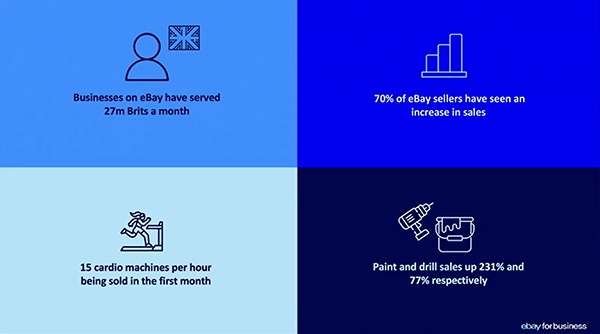November 11, 2020 Industry news
Recent IBM data suggests that we have seen an incredible increase in the use of e-commerce as a result of the coronavirus pandemic, accelerating usage by five years.
While physical department stores are expected to decline by over 60 per cent by the end of 2020, e-commerce is projected to grow by nearly 20 per cent. Marketplaces will be the main winners from this influx of new online shoppers, already accounting for 57 per cent of all global online sales.
At GS1 UK, we have already seen more than 4,000 new members join us in the past three months, primarily driven by the desire to sell on marketplaces. Indeed, 46 per cent of American companies and a huge 59 per cent of European companies already rely on marketplaces for their online sales. And, by 2025, it is predicted that around 65 per cent of European cross-border trade will be done via marketplaces.
So, why are marketplaces such a key e-commerce channel?
Last year alone, $1.97tr was spent globally on the top 100 online marketplaces, with these marketplaces accounting for more than 95 per cent of the global marketplace sales.
But why do shoppers keep coming back to marketplaces?
- Resilience - as aggregators of both stock and small businesses, marketplaces are more resilient that other e-commerce channels
- Convenience and selection – marketplaces stock huge product ranges, which means consumers can get everything they need from one place
- Trust - marketplaces are trusted by the consumer to meet their expectations and provide purchase protection, whether that is delivering the correct item on time or offering fantastic customer service
- Value driven – as consumers become more value focused, marketplaces are well positioned to serve customers looking to stretch their pennies
Sellers are seeing sales success on eBay
Global marketplace giant, eBay, has seen a significant acceleration in the number of businesses joining the platform during lockdown. While many of these businesses are SMEs, eBay have also seen a number of large retailers joining the platform for the first time, to develop a new route to market. In essence, moving sales online or onto eBay has been seen as a lifeline to many businesses.

During a recent presentation at GS1 Regional Forum, eBay’s trading director (home & garden), Chris Gardner, commented that businesses on eBay have sold to more than 27m Brits a month, since the beginning of lockdown. This illustrates what a key channel marketplaces like eBay have been for shoppers looking to find the things they need during this time.
Chris went on to share that 70 per cent of eBay business sellers have seen an increase in sales since March, despite the challenges of operating a global pandemic. This is because they adapted their business model and approach to satisfy evolving consumer demands.
During the first month of lockdown eBay saw a huge spike in home gym equipment, selling up to 15 cardio machines an hour to fill the void left by gym closures. Consumers have also started to look more closely at their homes, with both the DIY and home & garden categories seeing a significant uplift in sales.
More recently, eBay have seen a sales increase of more than 140 per cent on patio heaters, as people get ready to spend more time outside, in an effort to see loved ones. They have also seen an increase of between 90 to 100 per cent on hot tub sales since the beginning of lockdown, and it is not slowing down!
So, despite the uncertainty of lockdown, marketplaces like eBay are integral to today’s shopper.
- One in four online shoppers in the UK visit eBay every week
- 32 iPhones a minute are purchased on eBay in the UK
- 31 per cent of shoppers prefer a marketplace for a first-time purchase
- Price perception is the leading reason for shoppers to purchase on a marketplace
- eBay has more than 1.5 billion items for sale
How have eBay supported sellers throughout COVID-19?
While this has been an incredibly challenging time for any business, eBay have been conscious to support their sellers to ensure consumers are able to get the items they need. They have done this by:
- Investing $100m globally to support employee, consumer and seller communities throughout the pandemic
- Blocking or removing 15m listing that have made false health claims or offer products at an inflated price to ensure consumer trust
- Providing seller incentives, such as 100,000 free listings to support cash flow
- Launched a “Pay as you grow” programme where new sellers are supported with fees linking in with the government incentive – this means new sellers coming onto eBay don’t pay any fees on their first group of listings and only start to pay as they grow on eBay